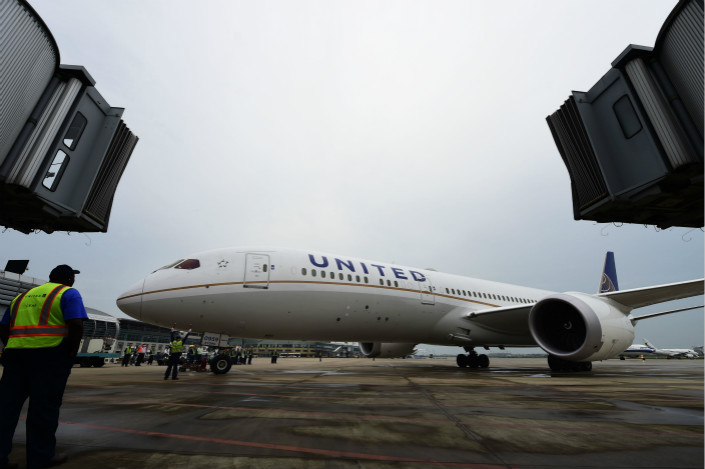China Insists on ‘One China’ Policy for Foreign Airlines

Foreign companies doing business in China should adhere to the country’s own definition of its borders, the Chinese Foreign Ministry said Monday in response to U.S. criticism of a recent aviation authority request as “Orwellian nonsense.”
Respecting “China’s sovereignty and territorial integrity” as well as the “national feeling of the Chinese people” should be a “basic principle” for foreign companies doing business in China, Ministry of Foreign Affairs spokesperson Geng Shuang told reporters at his regular news conference Monday.
The Chinese Civil Aviation Administration issued a letter in April to a number of foreign airlines, including U.S. carriers, demanding that they list Taiwan, Hong Kong, and Macau as parts of the People’s Republic of China, rather than separate countries.
White House Press Secretary Sarah Huckabee Sanders then hit back with a statement calling China’s demand “Orwellian nonsense,” and “part of a growing trend by the Chinese Communist Party to impose its political views on American citizens and private companies,” in a statement published on the website of the U.S. Embassy in China.
Hong Kong and Macau became special administrative regions of China in 1997 and 1999 respectively after years of European colonial rule. Beijing also considers Taiwan to be a province of China, rejecting the notion of China and Taiwan as two countries, or the notion of “two Chinas” (the People’s Republic of China and the Republic of China).
While many foreign companies have long included Hong Kong, Macau, and Taiwan in lists of “countries” on their websites or promotional materials, the Chinese government has lately become more vocal in its objection to these lists.
U.S. carrier Delta Airlines and hospitality giant Marriott International Inc. were among the foreign companies rebuked by Chinese authorities in recent months for their country lists. Marriott, which also included China’s Tibet autonomous region in its list of “countries,” drew fire from Chinese netizens, who called the labeling of Tibet in particular “egregious.” Delta and Marriott have since apologized and changed the wording on their websites.
“Whatever the U.S. side says or does will never change the objective fact that there is only one China in the world and the Hong Kong, Macau and Taiwan regions are all inalienable parts of China’s territory,” Geng said on Monday, adding that “China will continue to handle its relations with other countries in accordance with the one-China principle.”
Contact reporter Teng Jing Xuan (jingxuanteng@caixin.com)

- 1China Officials Dismiss Tax Hike Rumors After Tech Selloff
- 2Cover Story: How Gutter Oil Became a Prized Fuel for International Airlines
- 3Prominent Chinese Journalist Liu Hu Detained by Police in Chengdu
- 4Maersk Unit Takes Over CK Hutchison Panama Ports After Court Ruling
- 5China Provinces Set Cautious 2026 Growth Targets
- 1Power To The People: Pintec Serves A Booming Consumer Class
- 2Largest hotel group in Europe accepts UnionPay
- 3UnionPay mobile QuickPass debuts in Hong Kong
- 4UnionPay International launches premium catering privilege U Dining Collection
- 5UnionPay International’s U Plan has covered over 1600 stores overseas






